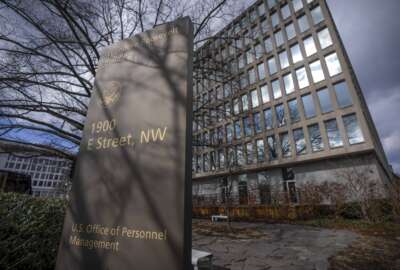‘Resources are going to shrink.’ Expect State Dept cuts under Trump, formers say
Meanwhile, a new bipartisan commission will soon take its own look at how to reform the State Department.
Worried about Schedule F and the future of your job? Excited to see if DOGE can improve government efficiency? Want to know more about the proposed pick to head up your department? Federal News Network is tracking all things transition-related, as the 47th administration’s plans for the federal workforce take shape. Visit our Tracking the Transition page to keep up with the latest developments.
President-elect Donald Trump spent his first term shrinking the State Department’s workforce and budget. Former members of the department’s Foreign Service expect to see a similar approach in his second term.
The Trump administration in early 2017 implemented a governmentwide hiring freeze that lasted for several months. But the administration kept a hiring freeze at the State Department in place for a year and-a-half, with the goal of reducing its total workforce by 8%.
Tibor Nagy, a former assistant Secretary of State for Africa under the first Trump administration, and a former ambassador to Guinea and Ethiopia, said he expects the next Trump administration will pursue a similar strategy.
“We just have to assume the resources are going to shrink. There’s not going to be more and more resources for the State Department, and more and more people. We can do the work — the essential — with less people,” Nagy said Tuesday at an event hosted by the Hudson Institute.
Meanwhile, a new bipartisan commission will soon take its own look at how to reform the State Department.
Congress in the fiscal 2023 National Defense Authorization Act launched the Congressional Commission on Reform and Modernization of the Department of State.
The panel, championed by Sens. Ben Cardin (D-Md.) and Bill Hagerty (R-Tenn.), will “examine the changing nature of diplomacy and the ways in which the department can modernize to advance the interests of the United States.”
The FY 2023 NDAA gives the commission 18 months to examine the challenges of modern-day diplomacy and report its findings to Congress and the president.
President Joe Biden appointed four members to the commission in October. Lawmakers gave the new commission $2 million in funding in the FY 2024 omnibus spending bill.
Drew Peterson, a former Foreign Service officer, now an adjunct professor at the University of Pittsburgh, urged the commission to focus on streamlining how the Foreign Service handles recruitment, assignments, evaluations and promotions.
“These processes are exceptionally inefficient and costly. They often produce high rates of vacancy, curtailments and other things that inhibit high-performing embassy operations. The department, bottom line, spends far too much time on these processes for insufficient results,” Peterson said.
Peterson said new Foreign Service hires can spend years doing consular work and training before doing the work they had been hired to do.
“When you add it all up, you might come up with a fairly unflattering ratio of time spent just sort of managing the institutional activities versus time spent actually advancing foreign policy goals in the United States,” he said.
Peterson said the new administration and the commission should also take a look at making sure the Foreign Service is bringing in the next generation of diplomats.
The average age of someone entering the Foreign Service is now 36 years, slightly higher than in recent years.
“You need to bring younger people back into the Foreign Service, even if they don’t spend a 28-year career there. That was the way it was 50 years ago. Today, maybe some people will come in and spend 10 years in the Foreign Service, or five or even three, and then they’ll go do something else.”
Simon Hankinson, a former Foreign Service officer, now a senior research fellow at the Heritage Foundation, said the work of modernizing the Foreign Service will take longer than the next administration.
“Let’s hope it could be in eight or twelve and that maybe Republicans and Democrats could agree that this needs to be done,” Hankinson said.
“We need a soup-to-nuts evaluation. The one thing that conservatives agree on is we can’t have unlimited funds and just keep doubling the staff and have a training float,” he added.
Copyright © 2024 Federal News Network. All rights reserved. This website is not intended for users located within the European Economic Area.
Jory Heckman is a reporter at Federal News Network covering U.S. Postal Service, IRS, big data and technology issues.
Follow @jheckmanWFED






